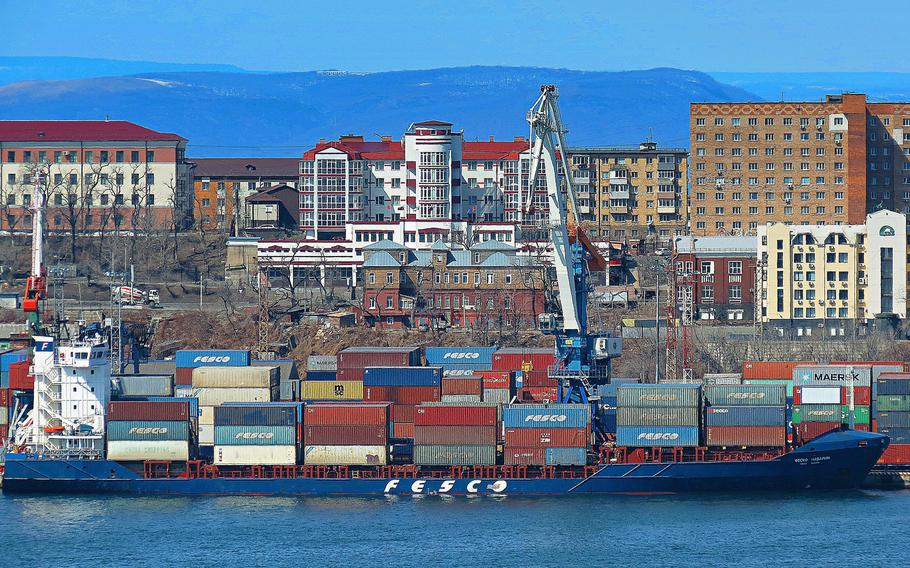
Vladivostok is the largest Russian port in the Far East with 2,300 workers, 15 berths and 45 cranes. It accommodates 2,000 vessels annually and handled more than 13 million tons of cargo last year, according to the port’s website. (Pixabay)
Russia has opened the home port of its Pacific naval fleet to Chinese commercial shipping, a sign of deepening ties between the two nations amid the Russia-Ukraine war.
The Russian port of Vladivostok opens to China on June 1 for “cross-border transport of domestic goods,” according to China’s state-run Global Times newspaper on Monday, which cited the General Administrations of Customs China, the nation’s customs ministry.
China’s trade with Russia reached a record $190 billion last year, even as Russian imports from European countries fell due to sanctions imposed following the invasion of Ukraine, Reuters reported Jan. 13.
Vladivostok, formerly known as Haishenwai, was part of China before it was ceded to Russian Empire in 1860 under the Convention of Peking. The convention, signed at the end of the Second Opium War, also ceded Hong Kong to the United Kingdom.
Since then, northern Chinese provinces have moved goods hundreds of miles overland to Dalian and other Chinese ports in the south, according to a Tuesday report on the Think China website.
Vladivostok is the largest Russian port in the Far East with 2,300 workers, 15 berths and 45 cranes. It accommodates 2,000 vessels annually and handled more than 13 million tons of cargo last year, according to the port’s website.
The arrangement for Chinese access should be viewed in the context of deepening defense ties between China and Russia in recent years, according to Grant Newsham, a senior researcher with the Japan Forum for Strategic Studies in Tokyo.
Russian forces operating out of Vladivostok already absorb American attention, he said in an email Wednesday.
“Should Chinese forces have access to Vladivostok that expands PLA (China’s People’s Liberation Army) operational options a bit - and also gives Japanese and US [and South Korean] forces one more thing to worry about and to devote resources to covering,” he said.
Chinese military access to the port could be compared to the U.S. Navy gaining access to a port in Vietnam, an advantage for the Americans and something for the Chinese to worry about, he said.
“We’ve seen PLA and Russian forces conducting joint training of increasing complexity, to include coordinated naval and air operations near Japan - and even encircling Japan,” he said.
Russia fears China could seek to occupy its territory in the Far East and would limit Chinese military access to Vladivostok, he said.
“But for now, the two nations’ strategic interests align - both hate the United States and wish to defeat it - and thus the joint military activities,” he said.
However, James Brown, an international affairs expert at Temple University’s Japan campus, said the military significance of the port access deal appears limited.
“Even as the Russians encourage a greater Chinese economic presence in Vladivostok, they will be careful to protect the Pacific Fleet from prying eyes,” he said. “Vladivostok was a closed city during the Soviet period. That mindset has not disappeared in military circles.”